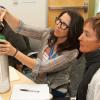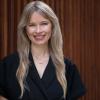
The voices of nurses are often absent from health news stories so the UCSF School of Nursing, in partnership with the American Nurses Association/California, hosted a workshop to help equip nurses with the skills to leverage their work through the media.
New Workshop Series Aims to Increase Visibility of Nurses
The UCSF School of Nursing is working to empower California nurses to better translate their work for the general public and leverage their voices to advance health care.
The School partnered with the American Nurses Association\California to launch a new educational series to arm nurses with the skills to work effectively with the news media, engage in media interviews with confidence, and write compelling op-eds and commentaries.
Although nursing has been consistently recognized as the most trusted profession, a 1998 Woodhull study found that nursing voices were cited 4 percent of the time in health news stories. When the study was replicated in 2018, it showed no improvement in 20 years.
Yet nurses have the training and expertise to inform and shape public discussions around health care, health policy and health equity.
To increase the visibility of nurses’ voices, a team of UCSF School of Nursing faculty — Ifeyinwa Asiodu, Orlando Harris, Monica McLemore and Jerry John Nutor — partnered with ANA\California’s President Anita Girard and Executive Director Marketa Houskova to lead a two-day virtual workshop series this past May. Barbara Glickstein, a public health nurse, health reporter and media strategist, facilitated the training. UCSF nursing faculty as well as ANA\California members made up the first cohort of 19 participants.
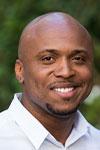 Orlando Harris “The COVID-19 pandemic has taught us how valuable the voices of nurses are in shaping the public perception of the impact of COVID-19 on vulnerable communities,” said Harris, assistant professor at the School of Nursing. “Nurses who are trained in how to communicate with the media can share patient care perspectives that are unique to our profession. This training was one of the necessary first steps in learning how to center our voices and expertise when communicating with the media.”
Orlando Harris “The COVID-19 pandemic has taught us how valuable the voices of nurses are in shaping the public perception of the impact of COVID-19 on vulnerable communities,” said Harris, assistant professor at the School of Nursing. “Nurses who are trained in how to communicate with the media can share patient care perspectives that are unique to our profession. This training was one of the necessary first steps in learning how to center our voices and expertise when communicating with the media.”
During the workshops, the nurses learned how to convey their health care research and clinical work into a message that would resonate with the general public. They heard directly from two veteran journalists about how to effectively pitch a health or science story to reporters, and learned how to craft effective op-eds, blogs and commentaries. The workshop series included exercises in which participants practiced presenting their key message to a lay audience, and engaged in mock media interviews.
“Formulating and delivering our two-minute pitches to the journalists was so helpful in getting over the anxiety of pitching,” said Heather Leutwyler, an associate professor at the UCSF School of Nursing who engaged in the workshop. “And they were great in providing tips on how to improve the message.”
Leutwyler, whose research includes examining unhoused individuals with mental illness, said the workshops’ facilitators instilled confidence in the participants and 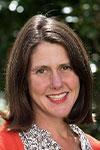 Heather Leutwyler motivated them to promote their work.
Heather Leutwyler motivated them to promote their work.
“I definitely believe in my expertise, I understand the issue and I have a unique perspective that needs to be heard,” Leutwyler said. “The more I interact with the media, the more comfortable I’ll get. This was a wonderful opportunity to get that practice and learn from experts.”
As president of the San Diego Black Nurses Association, Samantha Gambles Farr has gained significant media experience over the past year and a half as local media outlets have sought her expertise on the COVID-19 pandemic and social justice matters. The workshop series provided her additional strategies to communicate effectively.
“You learn better ways to frame conversations,” said Gambles Farr, a certified family nurse practitioner at UC San Diego Health, clinical adjunct professor at the University of San Diego’s Hahn School of Nursing & Health Science, and an ANA\California member. “It’s important to know how to bring those conversations [with reporters] back around to where you want them.”
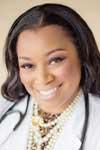 Samantha Gambles Farr Gambles Farr said learning from her fellow participants was just as important as the knowledge she gained from the workshops’ leaders.
Samantha Gambles Farr Gambles Farr said learning from her fellow participants was just as important as the knowledge she gained from the workshops’ leaders.
“You need a diverse group because everyone brings a different point of view,” she said. “We had that here and it was a great experience.”
Funding for the educational workshop series was provided by the UCSF Academic Senate and the ANA\California.
"The Nurses in Media coalition project trained nursing faculty so they, in turn, can teach nursing students how to best utilize various media to educate and influence decision-makers,” Girard said. “This was an important first step and ANA\California was very proud to collaborate with UCSF.”
Organizers hope to identify additional grant funding to continue offering the workshop series and train additional nurses on how to leverage their voices to improve health care.


